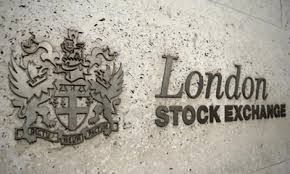Tuesday, 25 August 2015 16:55
 LONDON: Emerging markets stocks saw their biggest rise in two years on Tuesday after a rate cut from China to try to stabilise its troubled markets sent investors on a buying spree after seven days of back-to-back falls.
LONDON: Emerging markets stocks saw their biggest rise in two years on Tuesday after a rate cut from China to try to stabilise its troubled markets sent investors on a buying spree after seven days of back-to-back falls.
MSCI’s benchmark EM stocks index recovered almost half of the 5 percent it had lost on Monday when worries about China’s economic health had sent global markets into a panic. The out-of-hours move by China’s central bank saw it cut all its benchmark interest rates in a move worried China watchers had been wanting for a while.
It followed another calamitous day for its markets where the Shanghai Composite Index had fallen a further 8 percent and broken below the psychological level of 3,000. The index fell 15 percent the previous three days, including an 8.5 percent collapse on Monday.
“The PBOC (central bank) is doing what it has to do but it is very likely it is not enough so more will have to be done,” said Wei Yao, China economist for Societe Generale in Paris.
Though Asian markets were shut, the post-China cut cheer saw MSCI’s benchmark EM stocks index pile on the gains to an already health bounce.
Russian and Saudi stocks led the charge with gains of more than 4 and 7 percent respectively as oil also pulled out of its recent dive. Rises of between 1-3 percent in Indonesia and Malaysia in Asia and 3-5 percent in the Czech Republic and Hungary in Europe also lifted some of the recent gloom.
Helping the steadier conditions in Asia overnight, the South Korean won and stocks there jumped after North and South Korea agreed to end their recent military standoff in the divided peninsula.
Under an accord reached in the early hours, following more than two days of talks, North Korea expressed regret over the recent wounding of South Korean soldiers in landmine blasts and Seoul agreed to halt anti-Pyongyang propaganda broadcasts.
Taiwan’s dollar also rose as local stocks jumped 3.4 percent on hopes the government will soon step in to shore up stocks after its vice finance minister had said it was “aggressively evaluating” possible government buying.
The violence of the recent rout, however, meant that jitters remained close to the surface.
Pressure was back on many EM currencies as the dollar rose for the first time in five days and there was more bad news for commodity producers following the recent weakness in prices.
South Africa’s rand had briefly staggered backwards after data showed its stuttering economy contracted by 1.3 percent in the second quarter.
It was a similar story for Russia too as its economy minister said he now expected GDP to shrink 3.3 percent this year compared with the 2.8 percent projected previously. He did, however, add he thought the slide was bottoming out. “It is a tumultuous situation,” said Hans Peterson, global head of asset allocation at SEB investment management, referring to the gyrations in emerging markets.
“The combination of cheaper currencies and revalued equities is quite appealing actually but I still think we still need to see some fundamental proof of stability (in emerging markets).”



























